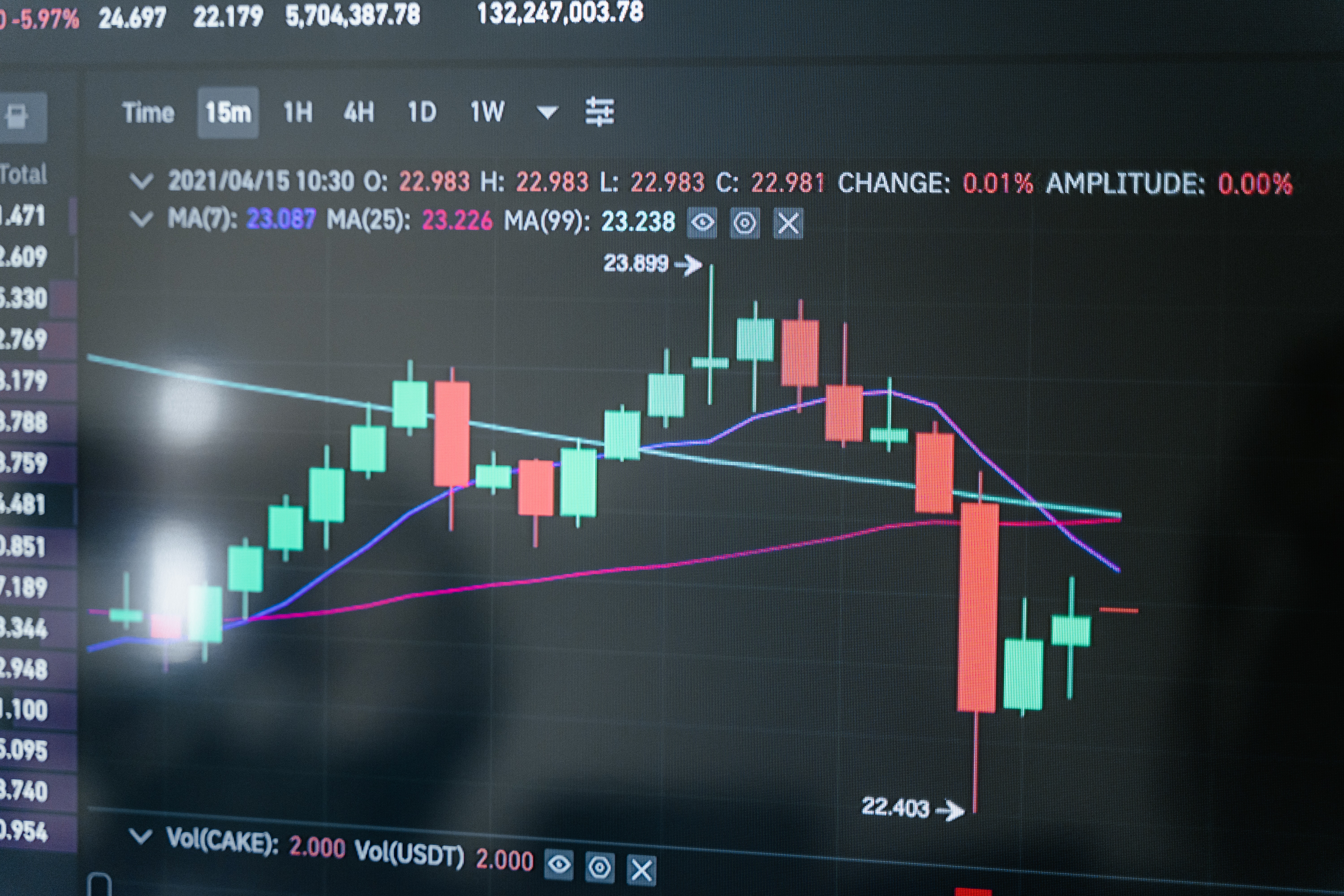UK Prime Minister Liz Truss has just taken office and wants to make significant changes to revitalize the British economy. However, her aggressive tax cut plan has triggered a major earthquake in the UK's capital market. The British pound has plummeted to a historical low, and UK government bonds have experienced a “collapse,” with pensions on the brink of collapse. To avoid a larger crisis, the Bank of England had to intervene in the market.
Although the UK's financial crisis has temporarily calmed down after the Bank of England announced its unlimited bond purchase operation, this crisis has exposed the world's vulnerability in fighting inflation and has raised concerns about a new round of global financial crisis.
“Fear is contagious,” said Ben Kumar, a senior strategist at Seven Investment Management LLP. “The selling of (pension) funds has exacerbated the volatility of UK government bonds, leading to the selling of the pound due to instability and causing an outflow of UK assets, which in turn triggers a parallel sell-off of global (assets).”

At the same time, the global market has also issued warning signals. An indicator shows that the volatility of the global currency and bond markets has soared to the highest level since March 2020. In addition, the global cross-asset market risk indicator of Bank of America has also jumped to the highest level since the outbreak of the pandemic.
The U.S. financial market has also issued a collapse signal. With the third consecutive violent interest rate hike, the panic of recession has intensified, and the decline of the U.S. stock market this year has already ranked third in history.
Former U.S. Treasury Secretary Summers warned on Thursday that the current market risks seem astonishingly similar to the risks that appeared before the outbreak of the 2008 financial crisis, and the crisis in the UK may spread globally.
The global market fluctuates intensely, inflation concerns spread, and the impact of the Federal Reserve's aggressive interest rate hikes spills over… A new round of global financial crisis that will be recorded in history may be brewing.

On September 23, the UK government introduced its largest tax cut policy since 1972, without providing details on how to finance it. What worries the market even more is that the tax cuts will increase the fiscal deficit, intensifying concerns about the UK's “fiscal dominance” and inflation risks.
Truss's ambition to drive economic growth is completely at odds with the central bank's policy stance on controlling inflation. It is believed that this is a gamble by the UK with its history and future, betting not only on whether the new plan can succeed, but also on the entire economic prospect of the UK.
For a while, the UK market fell into turmoil, with the pound-to-dollar exchange rate hitting a record low, UK government bonds being heavily sold off, and UK pensions facing massive margin calls.
To stabilize the market, the Bank of England (BoE) launched a temporary emergency bond purchase program of 65 billion pounds, implementing a twisted operation of tightening through interest rate hikes and quantitative tightening (QT) while simultaneously conducting quantitative easing (QE) for “looseness”.
The BoE's emergency intervention averted a financial disaster that could have been triggered by pension funds heavily selling UK government bonds.
The market quickly stabilized, with long-term bonds reversing their trend and experiencing the largest increase in history. Meanwhile, the British pound rebounded from a record low, trading above 1.12 US dollars, marking the largest weekly increase since 2020.
Greater economic turmoil in the UK may be brewing
However, beneath the brief calm of the UK market, a larger turmoil may be brewing.
An indicator shows that sentiment towards the British pound remains highly bearish. The fear and greed index, a technical indicator used by traders to measure the strength of the willingness to buy and sell the pound, is at its most bearish level since the UK's Brexit referendum in 2016.
The Bank of England's restarted asset purchase plan will only last for two weeks, and the market expects that the Bank will continue to raise interest rates significantly in the coming months. Truss's firm stance on the tax cut plan is destined to become a sword of Damocles hanging over the market.
Analysis suggests that even if the situation of the British pound falling to parity with the US dollar is avoided, it may not last long – unless Truss makes a 180-degree turn on his tax cut plan, which is valued at about 45 billion pounds.

For the UK, the storm is about to hit. Not only that, but the UK may also be on the verge of a black swan event. On October 21st, two of the world's three major credit rating agencies, S&P and Moody's, will reassess the UK government's credit rating.
Moody's has already labeled the UK government's largest tax cut in 50 years as “negative,” believing that this move will threaten the UK's reputation among investors. However, Moody's has not yet downgraded the UK's credit rating outlook to negative. S&P has taken a step further by maintaining the UK's AA/A-1+ sovereign credit rating but has changed the outlook from “stable” to “negative.”
A downgrade in credit rating could put pressure on the UK's foreign debt and potentially impact the economic outlook. If the fiscal situation remains tight, the UK's sovereign credit rating may be downgraded.

It is evident that the catalyst for the significant blow to the UK financial market this time was the announcement of the Bank of England's second consecutive interest rate hike of 50 basis points, followed by the UK Treasury's announcement of the largest tax cut plan in half a century, which ignited market concerns about inflation.
Regarding the massive tax cut plan, public opinion in the UK is boiling, but Truss remains unyielding, insisting on sticking to the massive tax cut plan. On the other hand, UK regulators are busy holding meetings with investors to prevent another financial turmoil. The UK Chancellor of the Exchequer is also busy explaining the tax cut plan to Wall Street banks and global investors.
The entire process has exposed the rapidly intensifying contradictions between the UK's monetary policy and fiscal policy, as well as the contradictions between balancing inflation and economic growth. These two sets of contradictions, especially the latter, are unavoidable for central banks around the world.

Dan Suzuki, Deputy Chief Investment Officer at Richard Bernstein Advisors, stated:
“The collapse of UK policy has been a significant driver of recent market action. Given that most markets are facing highly similar macro factors – high inflation, slowing growth, and tightening monetary policy, investors often extrapolate new policies from one market to others.”
Seema Shah, Chief Global Strategist at Principal Global Investors, told the media that “Gilt-edged bonds (UK government bonds) are specific to the UK, but inflation is not. Concerns about inflation are spreading globally.”
Across the Atlantic in the United States, the real yield on the US 10-year Treasury Inflation-Protected Securities (TIPS) once hit a twelve-year high, with investors betting that inflationary pressures will force the Federal Reserve to maintain higher interest rates in the foreseeable future.
The United States is also increasingly concerned about turmoil in the UK market. The Biden administration is shocked by the market turmoil caused by the UK government's economic plan and is trying to encourage Prime Minister Truss's team to reassess its significant tax cut plan. The IMF has strongly criticized the plan and stated that it is “closely monitoring” the situation in the UK, warning that an “untargeted” package plan could lead to a surge in inflation. The aforementioned global rating agency Moody's also warned the UK government that an unfunded tax cut plan could lead to an expansion of the budget deficit and an increase in interest rates, downgrading the UK's GDP growth forecast for 2023 from 0.9% to 0.3%.
On the other hand, against the backdrop of high inflation and the continuous interest rate hikes by the Federal Reserve, the S&P has fallen by a cumulative 25% so far this year, ranking third in history (since 1931). Compared to the record high in January this year, the market value of the S&P 500 has evaporated by about 10 trillion US dollars.
Other countries will not escape the fate of Britain
Former US Treasury Secretary Larry Summers also warned that the current market risks appear strikingly similar to those that emerged before the 2008 financial crisis.
“We are experiencing a period of heightened risk, just as people became anxious in August 2007, and I believe this should be an even more anxious moment. Something is about to collapse, not only in the UK but also in the US. It's a strange coincidence.”

The UK market is highly integrated with other developed markets. As a major global financial center, the UK has invested trillions of dollars in assets in the United States and other global markets.
The United States, as the world's largest economy, its every move also affects the trend of the global financial market.
From historical experience, the tightening cycle of the Federal Reserve often triggers global financial problems, the most obvious of which is the 2008 global financial crisis, as well as multiple emerging market crises, the financial market earthquake triggered by the collapse of the hedge fund Long-Term Capital Management in 1998, and the implosion of the overnight lending market in September 2019. When easy money disappears, bad things follow one after another.

Since the Federal Reserve began raising interest rates, the strong dollar has put pressure on other currencies, forcing many countries to follow suit and raise their own interest rates, sparking a battle to defend their national currencies, which often ends in “bloodshed.”
Now it appears that the United Kingdom may be the first major victim of the Federal Reserve's aggressive interest rate hikes.
In addition, the synchronicity of global market trends is stronger than ever, with one indicator showing that cross-asset correlation is close to its highest level in 17 years.

After the Bank of England pledged to buy unlimited long-term government bonds, the British pound almost recovered all its lost ground, but cross-market volatility remained high throughout the day. Looking at the whole week, the yield on the 10-year U.S. Treasury bonds has been fluctuating in sync with UK gilts.
In the view of U.S. banks, as the U.S. bond market approaches a critical point of pressure, if the Federal Reserve does not adjust its policies, the risk of a bond market failure will intensify, and the situation will become uncontrollable. At that time, the U.S. will become the next UK.
Some also believe that it is too early to worry that the UK crisis will evolve into a global financial crisis.
Ed Al-Hussainy, a senior interest rate strategist at investment firm Columbia Threadneedle Investment, stated that this situation would only occur when the wave of UK sell-offs begins to impact the US bond market.
So far, there are not many signs indicating that the world's other markets are behaving “chaotically,” but considering the ongoing geopolitical tensions, increased uncertainty in economic policy prospects, persistently high underlying inflation rates, and increased commodity volatility, this situation could change in the blink of an eye.
He stated that when a major country like the UK experiences such events, it may have consequences beyond its scope. He compared fiscal issues to tremors before an earthquake. He said that although sometimes the tremors pass, reality is not always so fortunate – the situation in 2007 was an example of that.








